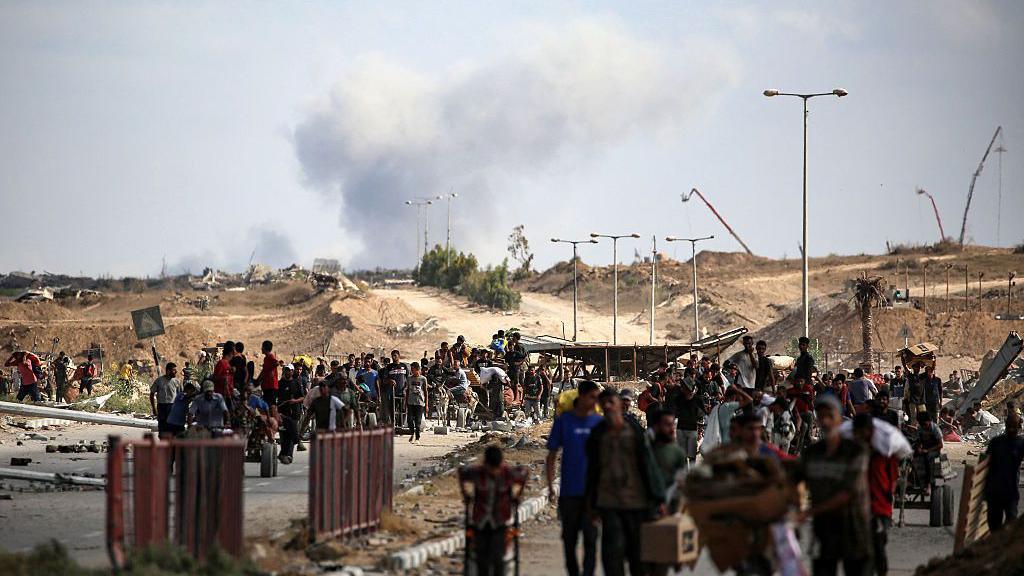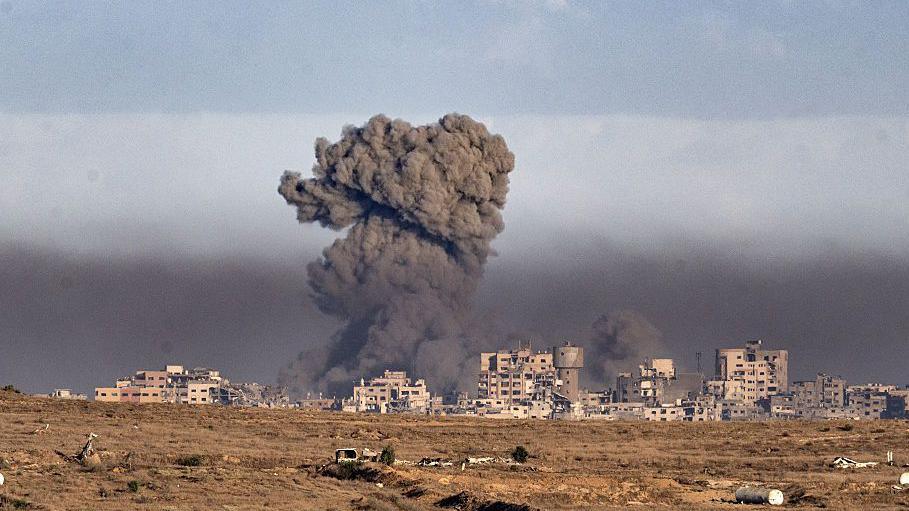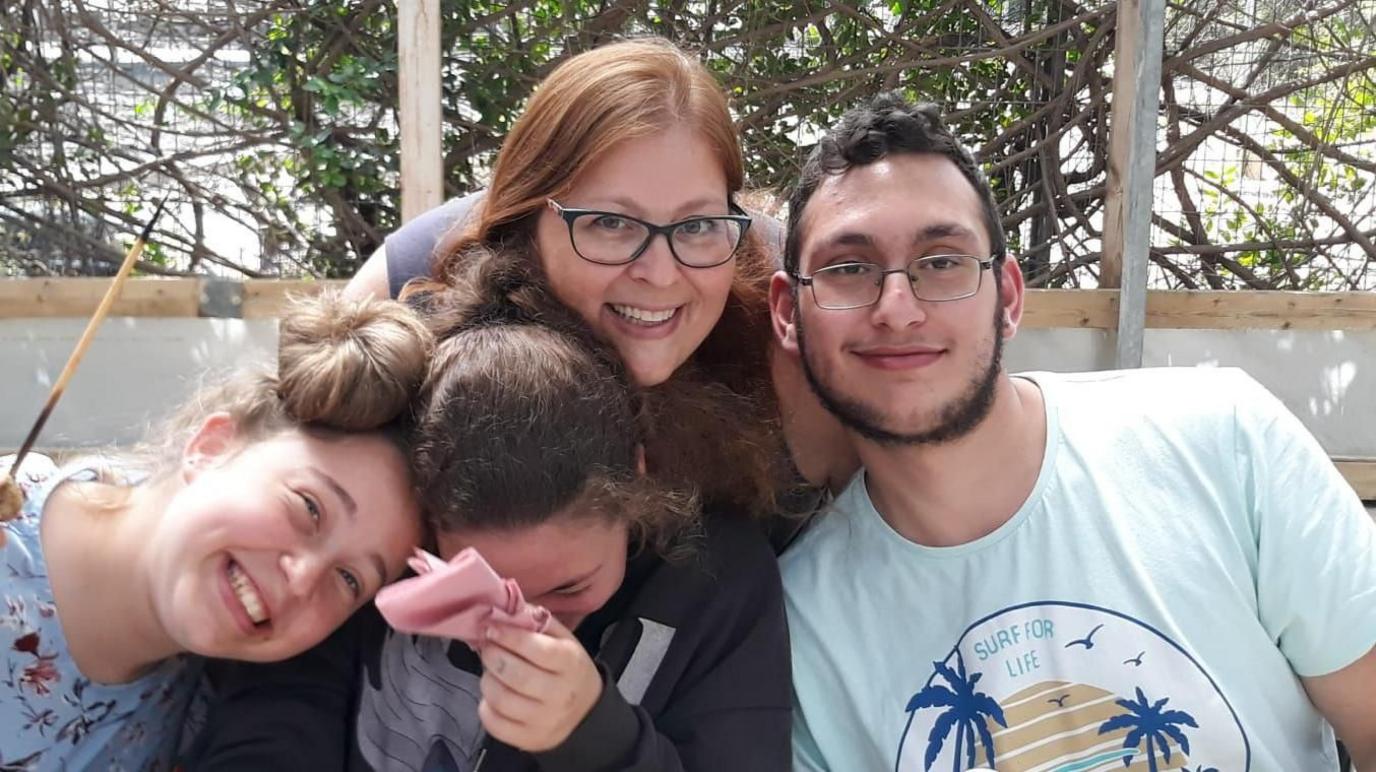'I lost so much' - Palestinians reflect on the toll of two years of war in Gaza
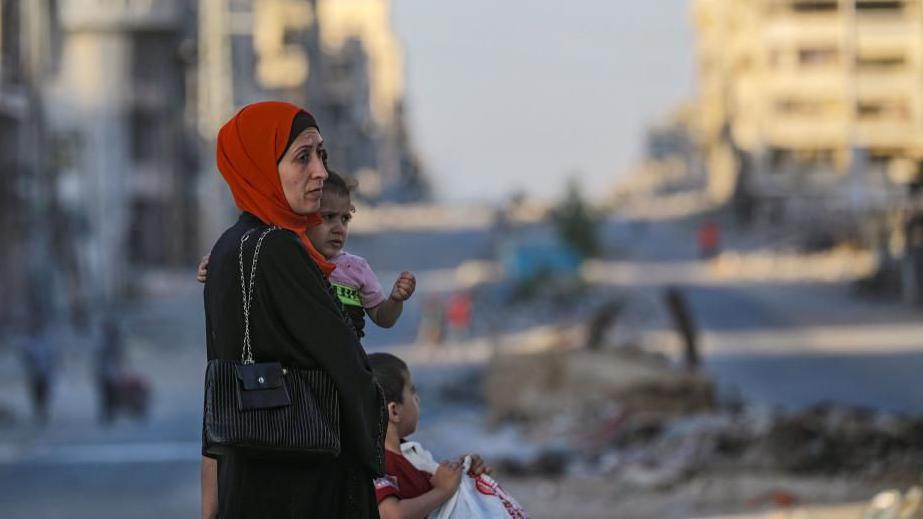
Hundreds of thousands of Palestinians have fled an Israeli offensive in Gaza City in recent months
- Published
"In these two years, I lost so much," says Emaan al-Wahidi. She is living in a rented garage, struggling each day to find food and clean water, and has been displaced multiple times.
Her 17-year-old son Jehad was on the street in Gaza early last year when an Israeli air strike hit nearby. He died from internal bleeding two days later.
"I lost Jehad," she says. "I lost my home, which is destroyed. We lost all of the beautiful life that we lived before the war."
Social media platforms have been flooded with posts from Palestinians who, like Ms Wahidi, have been reflecting on the toll on their lives since Hamas launched its unprecedented attack on Israel on 7 October 2023 - an event that triggered a war still raging today which has torn apart the lives of Gaza's population of more than two million.
They have been sharing photos and videos of relatives killed in the war, others who managed to flee, and the ruins of homes they once lived - fragments of lives shattered by a conflict that has reshaped Gaza's modern history.
In almost every conversation in Gaza, one haunting question now echoes without a clear answer: "When will the war end?"
Watch: Amal, a mother of two young children in Gaza, says she has lost hope
Despite cautious signs of progress in the ongoing indirect peace talks between Hamas and Israeli delegations in Egypt, centred on a peace plan presented by US President Donald Trump, few people dare to hope.
Many are urging Hamas to accept the deal - they are simply tired of death, displacement and hunger.
And there is a growing view that Hamas has prioritised its own survival over that of Gaza's people.
Two years on, the split is sharper than ever between Hamas loyalists who still defend the movement to the core, and a war-weary majority of Gazans who have lost patience with endless destruction and despair.
Writing on social media, activist Mohammed Diab called 7 October a "black day in our people's history".
Human rights activist Khalil Abu Shammala criticised what he described as "political hypocrisy" among some Palestinian factions.
"For 23 months of destruction, these factions have shown no real national stance - not in politics, not in relief work, not even in respecting the people's will," he said.
Most in Gaza, including me, never imagined the war would drag on for two full years.
On the morning of 7 October, I was about to drive my children to school when we saw the first rockets fired by Hamas shooting through the sky.
Soon after, I saw images on social media of Hamas fighters crossing the separation fence towards Israel.
We later learnt of the scale of the Hamas-led attack: 1,200 people had been killed and 251 others taken back to Gaza as hostages.
Within hours, Palestinians realised that Israel would launch a retaliatory campaign unlike any before.
Since then more than 67,000 people have been killed, according to the territory's Hamas-run health ministry. Its figures are widely accepted by the United Nations and other international bodies as being accurate.
And across the territory, more than 90% of housing units have been damaged or destroyed according to the UN.
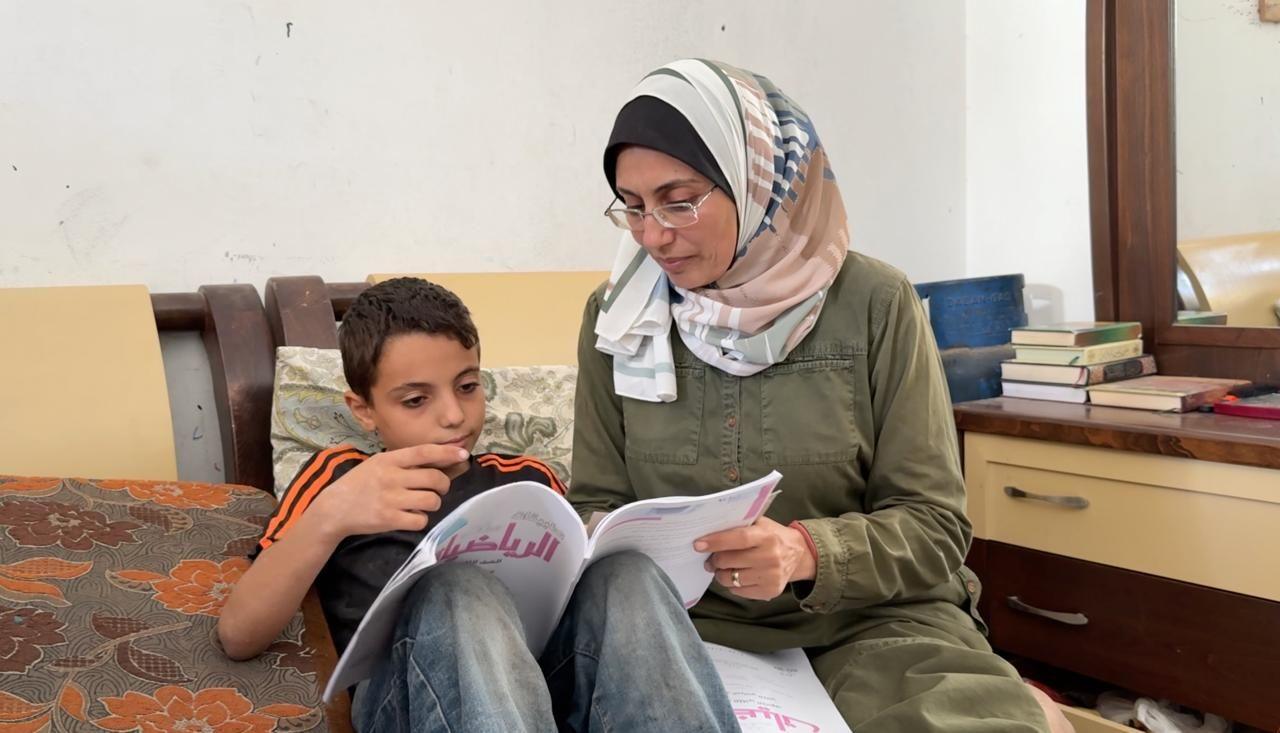
Emaan al-Wahidi with her son - early in the war she set up a temporary school after the first time she was displaced
Early in the war, Ms Wahidi was displaced with her family to the central city of Deir al-Balah and set up a temporary school to help children like her own who were missing their education.
She is proud of her oldest daughter, who was able to leave Gaza to study at Glasgow University.
During the ceasefire at the start of this year, she returned home to Gaza City only to be forced to flee once again with her three youngest children last month, as Israeli forces advanced.
Her husband stayed behind to care for his elderly parents who could not make the journey south.
"When the evening comes, the fear comes with it," she says. "Me and my three children are afraid of the air strikes. All the night we are sleeping together, holding each other, especially my smallest child who puts his head on me all night."
For Ms Wahidi, the war has felt endless.
"We expected it would be one month, two months, three months but two years it's a very long time," she says.
"Every second we look at the news to see what happened. And I'm afraid that this ceasefire will not be completed and that the war will come back to us."
Additional reporting by Yolande Knell in Jerusalem
- Published7 October
